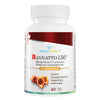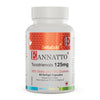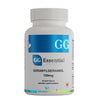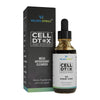Are you experiencing symptoms such as fatigue, muscle weakness, and slow wound healing? Have you been diagnosed with low total protein and low albumin levels? It's time to explore effective strategies to manage this condition and improve your health and nutritional status.
Low total protein and low albumin levels, also known as hypoalbuminemia, can be indicative of protein deficiency, protein malnutrition, or albumin deficiency. These conditions can have serious implications for your overall health and well-being.
This blog will delve into the causes and symptoms of low total protein and low albumin levels, the diagnostic tests used to identify these deficiencies, and the available interventions and treatments that can help restore optimal protein and albumin levels.
By understanding the underlying factors contributing to low protein synthesis and implementing dietary and lifestyle changes, you can take proactive steps toward improving your nutritional status.
Key Takeaways:
- Low total protein and low albumin levels can lead to symptoms such as fatigue, muscle weakness, and slow wound healing.
- Hypoalbuminemia is often caused by protein deficiency, protein malnutrition, or albumin deficiency.
- Blood tests measuring albumin levels and other related markers are used to diagnose and confirm low total protein and low albumin levels.
- Dietary interventions, including consuming protein-rich foods and making dietary modifications, can help address low protein levels.
- Medical treatments such as medication and intravenous supplementation may be necessary in severe cases of low total protein and low albumin levels.
Understanding Total Protein and Albumin Levels
To effectively manage low total protein and low albumin levels, it is essential to have a comprehensive understanding of what these levels represent, as well as the potential causes and implications of low levels.
Total protein refers to measuring all proteins present in the blood, while albumin specifically refers to a type of protein that plays a crucial role in maintaining proper fluid balance and transporting important molecules throughout the body.
Low total protein and low albumin levels can indicate various underlying conditions, such as protein deficiency or hypoalbuminemia, which is characterized by abnormally low levels of albumin in the blood.
Potential Causes of Low Total Protein and Low Albumin Levels
- Protein Deficiency: Inadequate intake of protein-rich foods or impaired absorption of protein can lead to low total protein and low albumin levels.
- Hypoalbuminemia: This condition may arise due to liver, kidney, inflammation, malnutrition, or other medical conditions that affect the body's ability to produce or retain albumin.
Implications of Low Total Protein and Low Albumin Levels
Low total protein and low albumin levels can have significant implications for overall health and wellbeing.
These implications may include:
- Compromised Immune Function: Albumin is involved in the transport of antibodies and other immune system components, so low levels can weaken the immune system's ability to fight infections.
- Fluid Retention and Edema: Albumin helps regulate fluid balance in the body. When albumin levels are low, fluid may accumulate in tissues, leading to swelling and edema.
- Reduced Healing and Recovery: Protein is essential for tissue repair and regeneration. Inadequate protein levels can hinder the body's ability to heal wounds and recover from injuries or surgeries.
By understanding the importance of total protein and albumin levels, as well as the potential causes and implications of low levels, individuals can better recognize the need for intervention and take proactive steps toward improving their health and nutritional status.
Causes and Symptoms of Low Total Protein and Low Albumin Levels
Low total protein and low albumin levels can be indicative of various underlying conditions and deficiencies in the body. Understanding the causes and recognizing the symptoms associated with low protein levels is essential for timely intervention and management.
Causes of Low Total Protein and Low Albumin Levels
- Protein Deficiency: Inadequate intake of protein-rich foods can lead to low protein levels in the body, compromising the synthesis of total protein and albumin.
- Hypoalbuminemia: This condition occurs when the body fails to produce enough albumin, often resulting from certain health issues.
- Protein Malnutrition: Severe and prolonged protein deficiency can lead to protein malnutrition, characterized by an overall depletion of total protein and albumin, negatively impacting various bodily functions.
- Albumin Deficiency: Some individuals may have genetic or hereditary conditions that impair the production or utilization of albumin, leading to low levels.
These causes can occur independently or in combination, contributing to low total protein and low albumin levels in the body.
Symptoms of Low Total Protein and Low Albumin Levels
The symptoms associated with low total protein and low albumin levels vary depending on the severity and underlying cause.
Common symptoms may include:
- Swelling, especially in the extremities
- Fluid retention in the abdomen, leading to ascites
- Fatigue and weakness
- Poor appetite
- Weight loss
- Delayed wound healing
- Impaired muscle strength
- Increased susceptibility to infections
If you experience any of these symptoms or suspect low total protein and low albumin levels, it is important to consult with a healthcare professional for a proper diagnosis and appropriate treatment.
Diagnostic Tests for Low Total Protein and Low Albumin Levels
When facing symptoms indicative of low total protein and low albumin levels, it is crucial to undergo diagnostic tests to confirm the condition. These tests play a vital role in determining the severity of low protein and albumin levels and guiding subsequent treatment strategies.
Blood tests measuring albumin levels: One of the most commonly used diagnostic tests for low total protein and low albumin levels is a blood test that measures albumin levels. This test provides valuable information about the amount of albumin in the blood, allowing healthcare professionals to assess the extent of albumin deficiency and the overall severity of hypoalbuminemia.
Additional markers: In some cases, healthcare providers may order additional blood tests to evaluate other markers related to low total protein and low albumin levels. These markers can provide insights into the underlying causes of hypoalbuminemia and help determine the appropriate course of treatment. Some of the additional markers that may be assessed include liver function tests, kidney function tests, and measures of protein synthesis.
Through these diagnostic tests, healthcare professionals can accurately diagnose low total protein and low albumin levels, enabling the development of an individualized management plan. It is essential to consult with a healthcare provider or a registered dietitian for proper evaluation and guidance based on the diagnostic test results.
Dietary and Lifestyle Interventions
To address low total protein and low albumin levels, implementing appropriate dietary and lifestyle interventions can play a crucial role in improving overall health and nutritional status. By incorporating protein-rich foods, making dietary modifications, and adopting lifestyle changes that support protein synthesis, individuals can take proactive steps toward restoring the balance of protein and albumin in their bodies.
1. Focus on Protein-Rich Foods
Consuming foods that are high in protein can help replenish low protein levels and promote the synthesis of albumin. Incorporate lean meats, fish, poultry, eggs, dairy products, legumes, and nuts into your diet. These protein-rich foods provide essential amino acids, which are the building blocks for protein synthesis in the body.
2. Optimize Dietary Modifications
In addition to increasing protein intake, specific dietary modifications can further support the management of low protein and albumin levels. Incorporating small, frequent meals throughout the day, rather than large meals, can enhance protein absorption and utilization. Additionally, reducing the intake of processed and refined carbohydrates can optimize protein synthesis and improve overall nutritional status.
3. Implement Lifestyle Changes
Several lifestyle changes can also contribute to improving protein synthesis and addressing low total protein and low albumin levels. Regular physical activity, such as strength training exercises, can stimulate protein synthesis and enhance muscle mass. Engaging in activities that reduce stress, such as meditation or yoga, can have a positive impact on overall health and promote optimal protein synthesis.
- Include lean meats, fish, poultry, eggs, dairy products, legumes, and nuts in your diet for adequate protein intake.
- Consume small, frequent meals throughout the day to optimize protein absorption and utilization.
- Reduce the consumption of processed and refined carbohydrates to enhance protein synthesis.
- Engage in regular physical activity, such as strength training exercises, to stimulate protein synthesis and improve muscle mass.
- Incorporate stress-reducing activities like meditation or yoga to support optimal protein synthesis and overall health.
Medical Treatments and Therapies
When it comes to managing low total protein and low albumin levels, various medical treatments and therapies can be employed to address the underlying causes and improve the patient's condition.
These interventions may include:
- Medication: Depending on the specific condition causing low total protein and low albumin levels, doctors may prescribe medications to help regulate protein synthesis, enhance albumin production, or treat protein deficiencies. It is essential to follow the prescribed medication regimen and consult with a healthcare professional regarding any potential side effects or interactions.
- Intravenous Supplementation: In some cases of severe protein deficiency or hypoalbuminemia, intravenous supplementation may be necessary. This involves the administration of protein and albumin directly into the bloodstream to quickly replenish levels and support overall health. These interventions are typically performed under medical supervision and require regular monitoring.
- Addressing Underlying Causes: By identifying and addressing the underlying causes of low total protein and low albumin levels, healthcare professionals can implement targeted therapies. For example, if protein malnutrition or dietary deficiencies are contributing factors, a nutritionist or dietitian might create a personalized meal plan to increase protein intake and improve nutrition. Similarly, if liver or kidney disorders are causing protein synthesis problems, specialized treatment strategies may be necessary.
It is important to note that the specific medical treatments and therapies utilized will depend on each individual's unique circumstances, medical history, and underlying conditions. Therefore, it is crucial to consult with a healthcare professional for a comprehensive evaluation and tailored treatment plan.
Conclusion
Managing low total protein and low albumin levels is crucial for overall health and wellbeing. When individuals experience low protein levels, such as low total protein and low albumin levels, it can indicate protein deficiency, hypoalbuminemia, or protein malnutrition. These conditions can have significant implications for the body's ability to synthesize proteins and maintain optimal functioning.
By identifying the causes and symptoms of low total protein and low albumin levels, individuals can take proactive steps to address these deficiencies. Diagnostic tests, such as blood tests measuring albumin levels and related markers, can help confirm the presence of low protein levels and guide appropriate interventions.
Addressing low total protein and low albumin levels often involves dietary and lifestyle interventions. Individuals should focus on consuming protein-rich foods and making dietary modifications to support protein synthesis.
Additionally, incorporating lifestyle changes, such as regular exercise and proper hydration, can contribute to overall nutritional status and improve the body's ability to maintain adequate protein levels.
In some cases, medical treatments and therapies may be necessary to manage low total protein and low albumin levels. Medication, intravenous supplementation, and other interventions can be used to address underlying causes and support protein synthesis in individuals with protein deficiencies.
FAQs
What are the symptoms of low total protein and low albumin levels?
Symptoms of low total protein and low albumin levels may include edema (swelling), fatigue, muscle weakness, loss of appetite, and slowed wound healing.
What can cause low total protein and low albumin levels?
Low total protein and low albumin levels can be caused by various factors or due to certain medications.
How are low total protein and low albumin levels diagnosed?
Low total protein and low albumin levels are diagnosed through blood tests that measure albumin levels and other related markers. Additional diagnostic tests may also be conducted to determine the underlying cause.
What dietary changes can help increase total protein and albumin levels?
Consuming a diet rich in protein from sources such as lean meats, fish, eggs, dairy products, legumes, and nuts can help increase total protein and albumin levels. It is also important to ensure adequate calorie intake and consult with a registered dietitian for personalized recommendations.
Are there any lifestyle changes that can improve low total protein and low albumin levels?
Yes, adopting a healthy lifestyle can support protein synthesis and improve nutritional status. Regular exercise, managing stress levels, and avoiding excessive alcohol consumption can all contribute to optimal total protein and albumin levels.
What medical treatments are available for low total protein and low albumin levels?
Medical treatments for low total protein and low albumin levels may include medication to address underlying conditions, intravenous supplementation of albumin, and other interventions depending on the cause.
Can low total protein and low albumin levels be reversed?
In many cases, low total protein and low albumin levels can be reversed with proper management and treatment of the underlying cause. However, individual responses may vary, and it is important to consult with a healthcare professional for personalized guidance.











